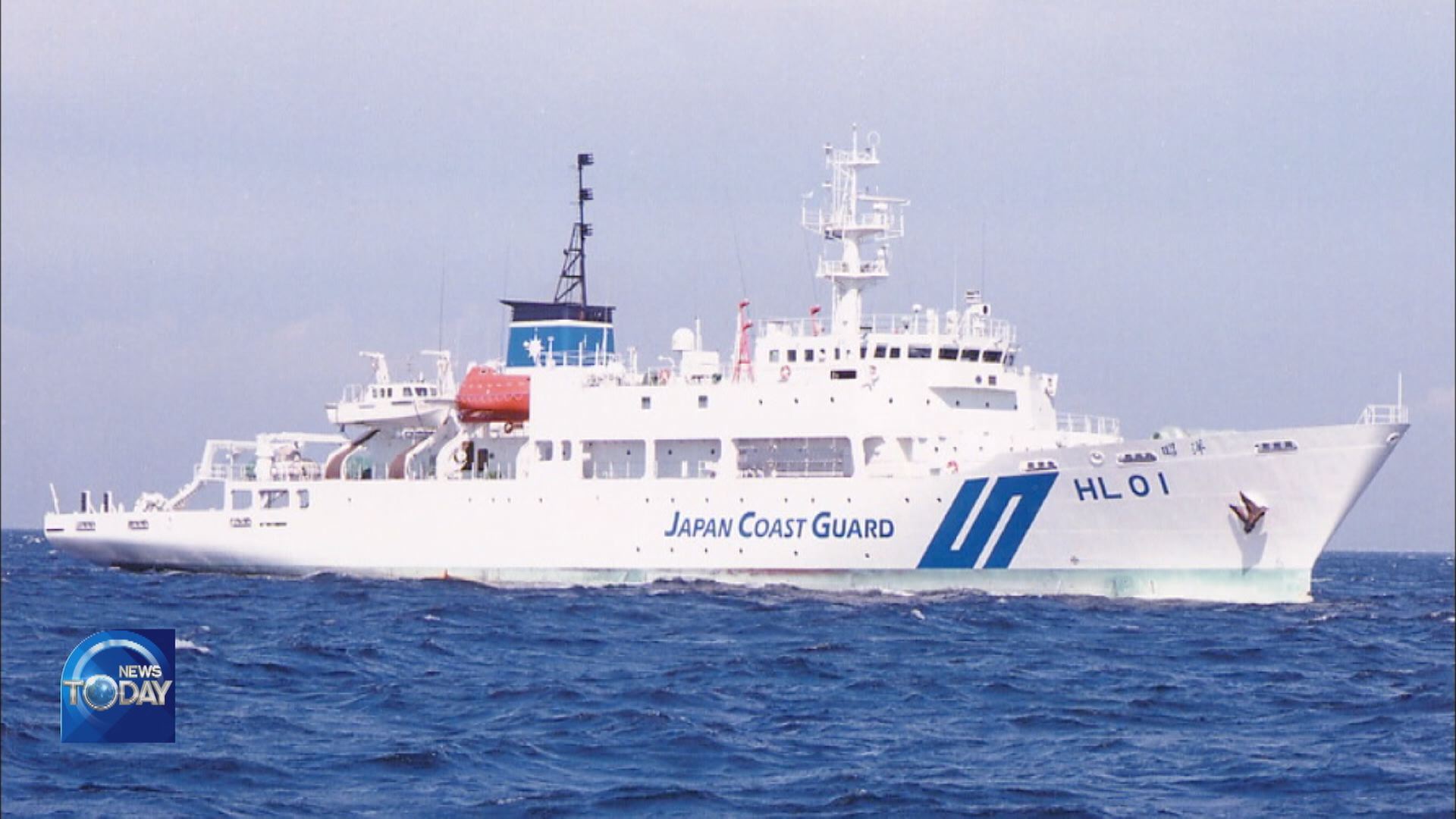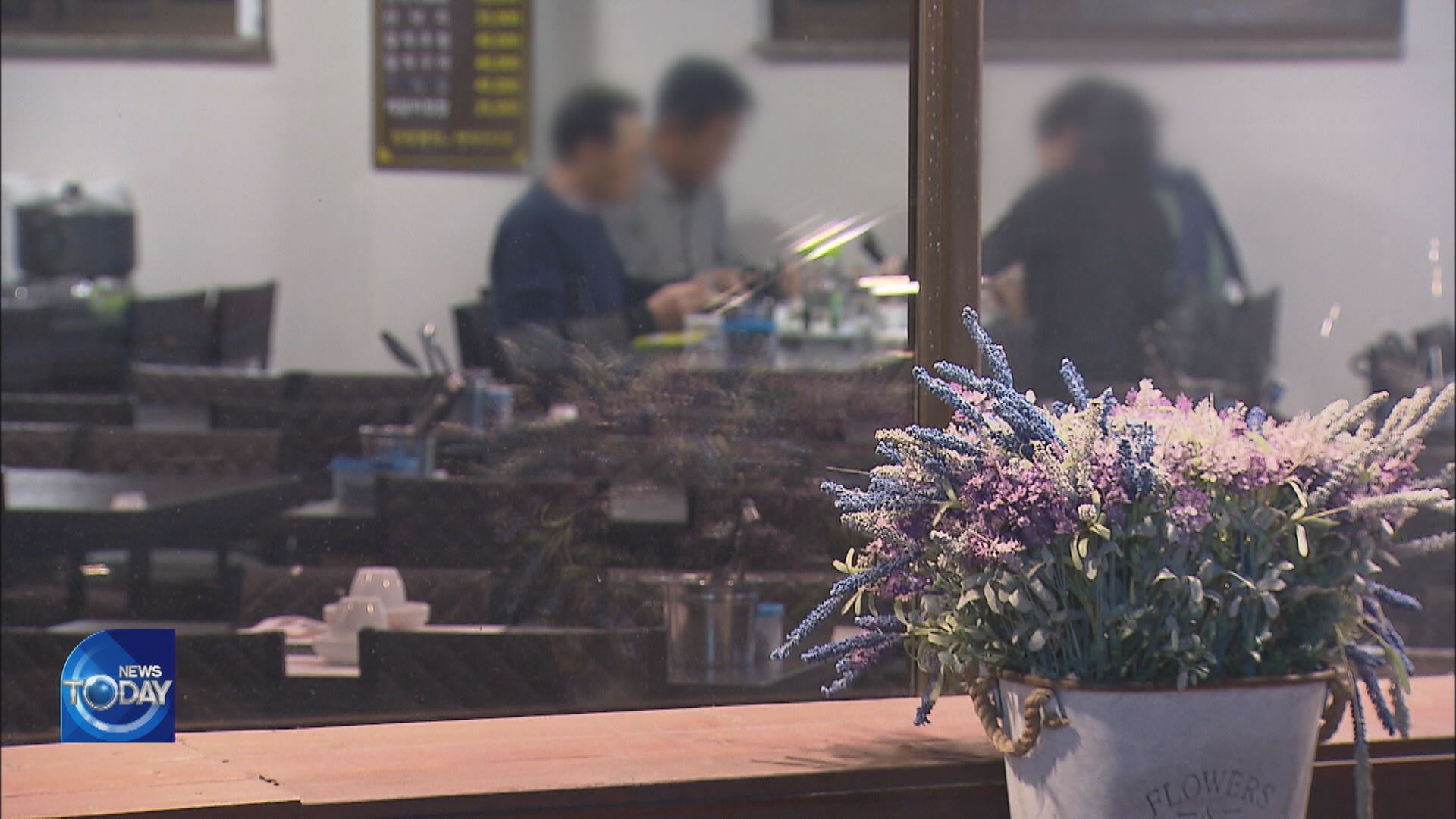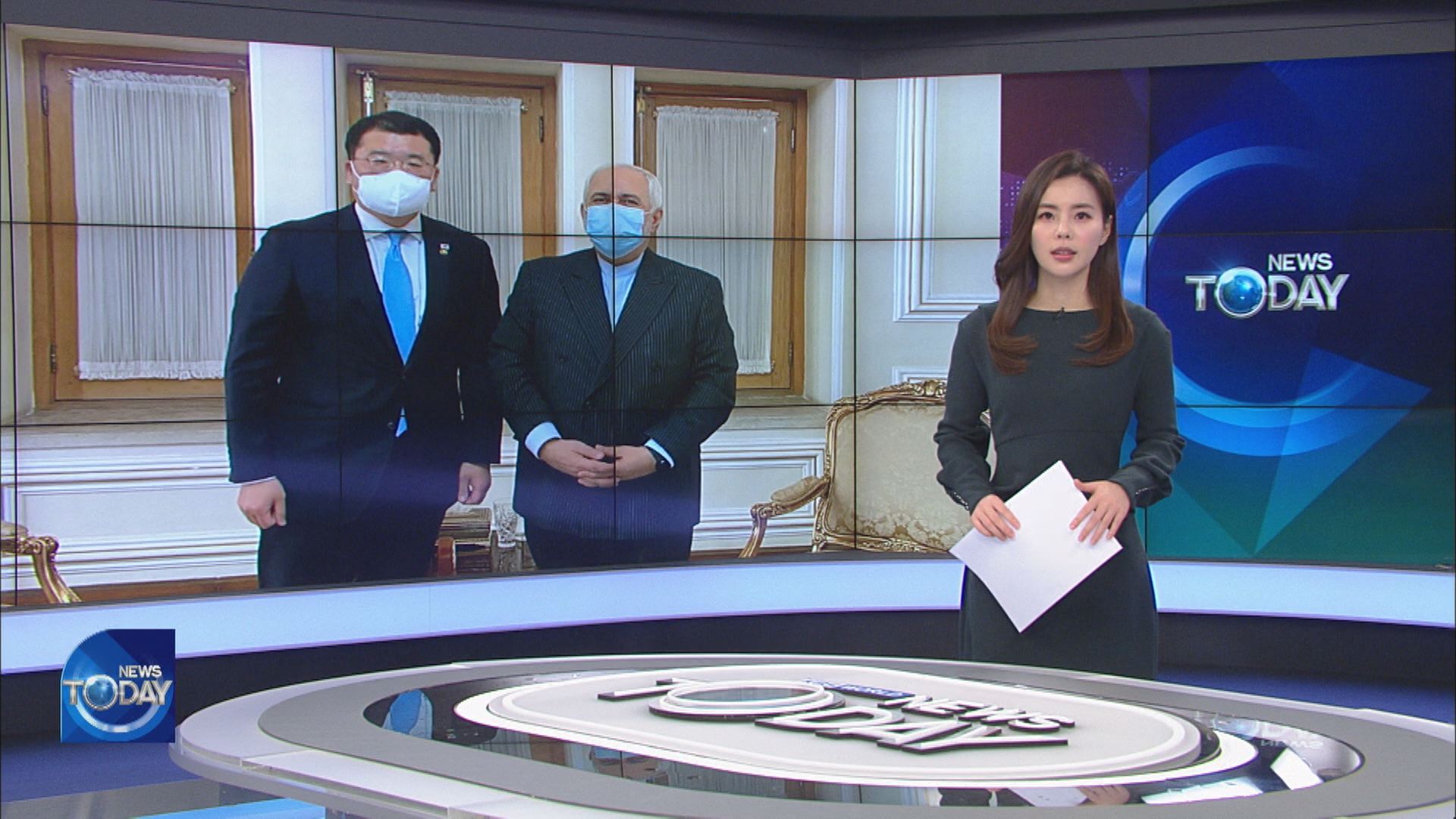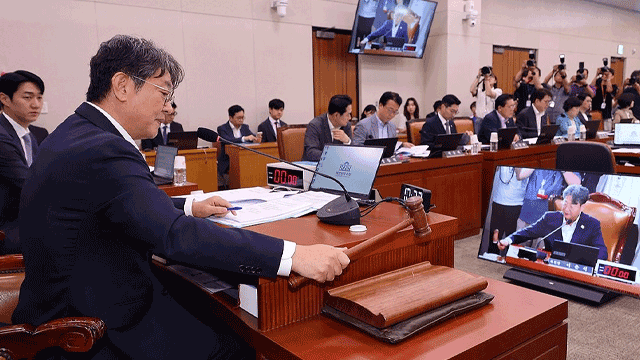S. KOREA-JAPAN EEZ CONFLICT
입력 2021.01.13 (15:01)
수정 2021.01.13 (16:45)
읽어주기 기능은 크롬기반의
브라우저에서만 사용하실 수 있습니다.
[Anchor Lead]
There is a body of water southeast of Jejudo Island where both South Korea and Japan claim as their exclusive economic zones, because the area is within 200 nautical miles from each country's shoreline. Japanese maritime survey vessels are continuously entering this overlapping area, causing confrontation with Korean Coast Guard ships.
[Pkg]
The Korean Coast Guard first identified a Japanese Coast Guard survey vessel in waters 130 kilometers southeast of Seogwipo in Jejudo Island late Sunday night at around 11:55 p.m. Over 2 days, Seoul requested the vessel cease activities as it needs prior consent from the Korean government. However the Japanese government filed a protest through its foreign ministry, arguing the vessel was conducting legitimate survey activity in Japan's own exclusive economic zone. Seoul's foreign ministry responded by highlighting its law enforcement was a justified act taking place within its EEZ.
[Soundbite] CHOI YOUNG-SAM(FOREIGN MINISTRY SPOKESPERSON) : "Legitimate law enforcement activities are regularly carried out in waters under the jurisdiction of our government. According to related agencies, we assess the location in which the Japanese vessel's survey took place is within our EEZ."
The disputed location is an overlapping area of both countries' EEZs. No agreement is reached on which side it belongs to. The Jeju Regional Coast Guard mobilized two 3,000-ton warships which are taking turns monitoring the area.
[Soundbite] GANG SEUNG-CHEOL(JEJU REGIONAL COAST GUARD) : "We confirmed the Japanese ship left the Korean EEZ at 4:24 p.m. Tuesday. We will continue monitoring in case similar activities resume in our waters."
The Coast Guard will keep close tabs on the situation indefinitely, considering the fact that once a maritime survey begins, it can take over a month.
There is a body of water southeast of Jejudo Island where both South Korea and Japan claim as their exclusive economic zones, because the area is within 200 nautical miles from each country's shoreline. Japanese maritime survey vessels are continuously entering this overlapping area, causing confrontation with Korean Coast Guard ships.
[Pkg]
The Korean Coast Guard first identified a Japanese Coast Guard survey vessel in waters 130 kilometers southeast of Seogwipo in Jejudo Island late Sunday night at around 11:55 p.m. Over 2 days, Seoul requested the vessel cease activities as it needs prior consent from the Korean government. However the Japanese government filed a protest through its foreign ministry, arguing the vessel was conducting legitimate survey activity in Japan's own exclusive economic zone. Seoul's foreign ministry responded by highlighting its law enforcement was a justified act taking place within its EEZ.
[Soundbite] CHOI YOUNG-SAM(FOREIGN MINISTRY SPOKESPERSON) : "Legitimate law enforcement activities are regularly carried out in waters under the jurisdiction of our government. According to related agencies, we assess the location in which the Japanese vessel's survey took place is within our EEZ."
The disputed location is an overlapping area of both countries' EEZs. No agreement is reached on which side it belongs to. The Jeju Regional Coast Guard mobilized two 3,000-ton warships which are taking turns monitoring the area.
[Soundbite] GANG SEUNG-CHEOL(JEJU REGIONAL COAST GUARD) : "We confirmed the Japanese ship left the Korean EEZ at 4:24 p.m. Tuesday. We will continue monitoring in case similar activities resume in our waters."
The Coast Guard will keep close tabs on the situation indefinitely, considering the fact that once a maritime survey begins, it can take over a month.
■ 제보하기
▷ 카카오톡 : 'KBS제보' 검색, 채널 추가
▷ 전화 : 02-781-1234, 4444
▷ 이메일 : kbs1234@kbs.co.kr
▷ 유튜브, 네이버, 카카오에서도 KBS뉴스를 구독해주세요!
- S. KOREA-JAPAN EEZ CONFLICT
-
- 입력 2021-01-13 15:01:28
- 수정2021-01-13 16:45:21

[Anchor Lead]
There is a body of water southeast of Jejudo Island where both South Korea and Japan claim as their exclusive economic zones, because the area is within 200 nautical miles from each country's shoreline. Japanese maritime survey vessels are continuously entering this overlapping area, causing confrontation with Korean Coast Guard ships.
[Pkg]
The Korean Coast Guard first identified a Japanese Coast Guard survey vessel in waters 130 kilometers southeast of Seogwipo in Jejudo Island late Sunday night at around 11:55 p.m. Over 2 days, Seoul requested the vessel cease activities as it needs prior consent from the Korean government. However the Japanese government filed a protest through its foreign ministry, arguing the vessel was conducting legitimate survey activity in Japan's own exclusive economic zone. Seoul's foreign ministry responded by highlighting its law enforcement was a justified act taking place within its EEZ.
[Soundbite] CHOI YOUNG-SAM(FOREIGN MINISTRY SPOKESPERSON) : "Legitimate law enforcement activities are regularly carried out in waters under the jurisdiction of our government. According to related agencies, we assess the location in which the Japanese vessel's survey took place is within our EEZ."
The disputed location is an overlapping area of both countries' EEZs. No agreement is reached on which side it belongs to. The Jeju Regional Coast Guard mobilized two 3,000-ton warships which are taking turns monitoring the area.
[Soundbite] GANG SEUNG-CHEOL(JEJU REGIONAL COAST GUARD) : "We confirmed the Japanese ship left the Korean EEZ at 4:24 p.m. Tuesday. We will continue monitoring in case similar activities resume in our waters."
The Coast Guard will keep close tabs on the situation indefinitely, considering the fact that once a maritime survey begins, it can take over a month.
There is a body of water southeast of Jejudo Island where both South Korea and Japan claim as their exclusive economic zones, because the area is within 200 nautical miles from each country's shoreline. Japanese maritime survey vessels are continuously entering this overlapping area, causing confrontation with Korean Coast Guard ships.
[Pkg]
The Korean Coast Guard first identified a Japanese Coast Guard survey vessel in waters 130 kilometers southeast of Seogwipo in Jejudo Island late Sunday night at around 11:55 p.m. Over 2 days, Seoul requested the vessel cease activities as it needs prior consent from the Korean government. However the Japanese government filed a protest through its foreign ministry, arguing the vessel was conducting legitimate survey activity in Japan's own exclusive economic zone. Seoul's foreign ministry responded by highlighting its law enforcement was a justified act taking place within its EEZ.
[Soundbite] CHOI YOUNG-SAM(FOREIGN MINISTRY SPOKESPERSON) : "Legitimate law enforcement activities are regularly carried out in waters under the jurisdiction of our government. According to related agencies, we assess the location in which the Japanese vessel's survey took place is within our EEZ."
The disputed location is an overlapping area of both countries' EEZs. No agreement is reached on which side it belongs to. The Jeju Regional Coast Guard mobilized two 3,000-ton warships which are taking turns monitoring the area.
[Soundbite] GANG SEUNG-CHEOL(JEJU REGIONAL COAST GUARD) : "We confirmed the Japanese ship left the Korean EEZ at 4:24 p.m. Tuesday. We will continue monitoring in case similar activities resume in our waters."
The Coast Guard will keep close tabs on the situation indefinitely, considering the fact that once a maritime survey begins, it can take over a month.
이 기사가 좋으셨다면
-
좋아요
0
-
응원해요
0
-
후속 원해요
0

















이 기사에 대한 의견을 남겨주세요.